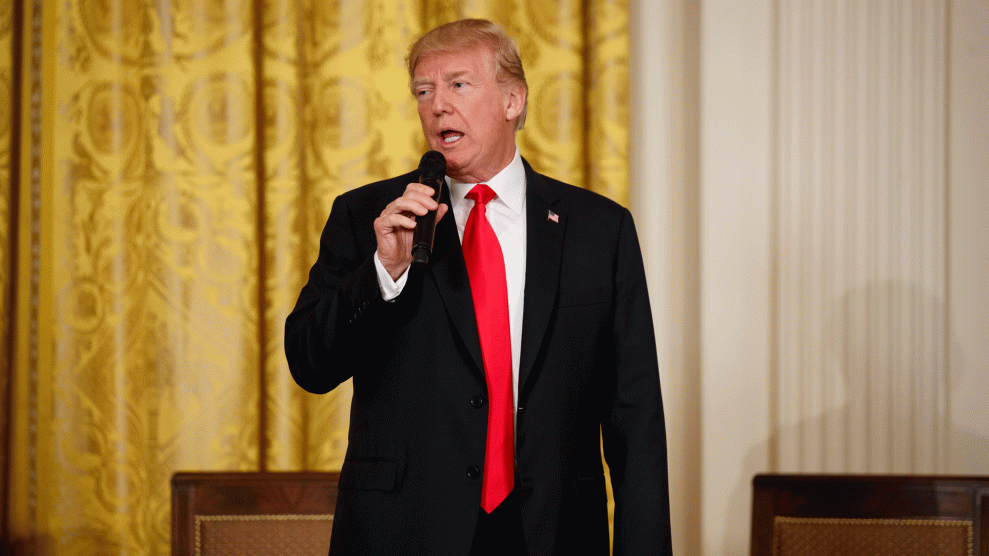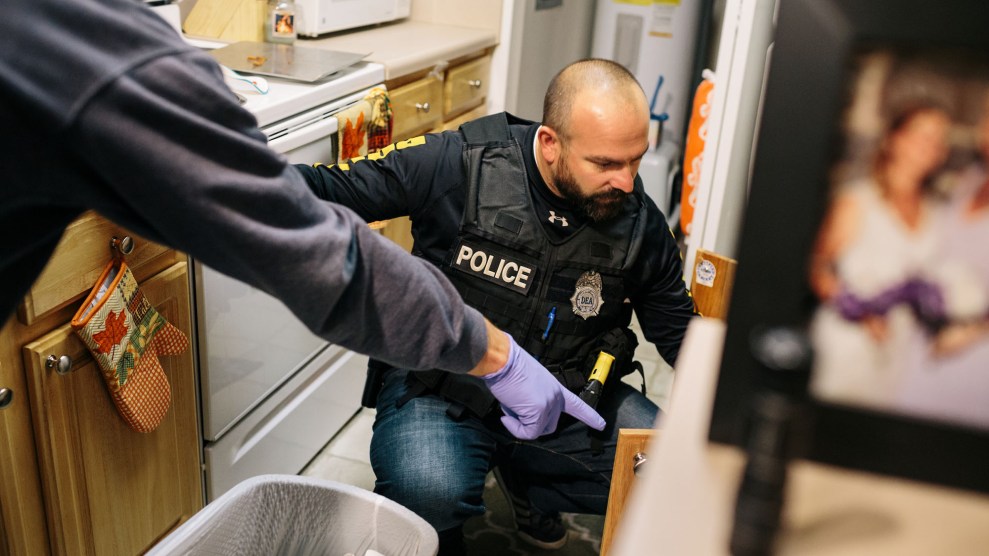
President Donald Trump at the White House Opioid SummitEvan Vucci/AP
At today’s White House Opioid Summit, President Donald Trump once again suggested that using the death penalty against drug dealers would help solve America’s overdose crisis.
“The answer is you have to have strength and you have to have toughness. The drug dealers, drug pushers—they’re really doing damage.” he said. “Some countries have a very, very tough penalty. The ultimate penalty. And, by the way, they have much less of a drug problem than we do. So we’re going to have to be very strong on penalties.”
The comment comes just days after Axios reported that Trump has been suggesting to friends that drug dealers should be executed. “He often jokes about killing drug dealers,” one senior administration official reportedly said. “He’ll say, ‘You know the Chinese and Filipinos don’t have a drug problem. They just kill them.'”
There is no evidence suggesting that harsher sentences—let alone the death penalty—reduces access to drugs or substance abuse rates. The suggestion also comes with a lot of legal barriers. As my colleague Nathalie Baptiste explained,
His plan seems to have been inspired by Singapore’s “Misuse of Drugs Act,” which calls for the death penalty for drug traffickers. In the past, he’s also praised Filipino President Rodrigo Duterte for his handling of drug dealers, despite the fact that the international community has accused the Filipino strongman of extrajudicial killings of those suspected of trafficking drugs. But such draconian approaches would not quite work in the US.
Today, the federal government and the states only dole out the harshest punishment for murder if certain criteria are met. The first big obstacle Trump would run into while trying to implement the death penalty for drug traffickers is contained in a document cherished by conservatives: The Constitution. The Eighth Amendment prohibits cruel and unusual punishments. “The constitutional problems are insurmountable,” Monica Foster, the chief federal defender at the Indiana Federal Community Defender, says about Trump’s idea.
Here’s his full talk:















